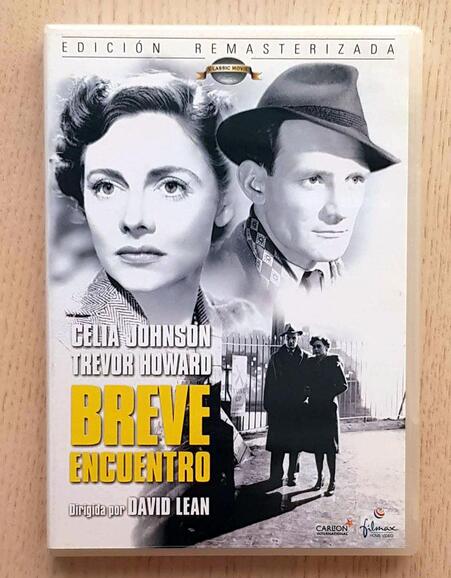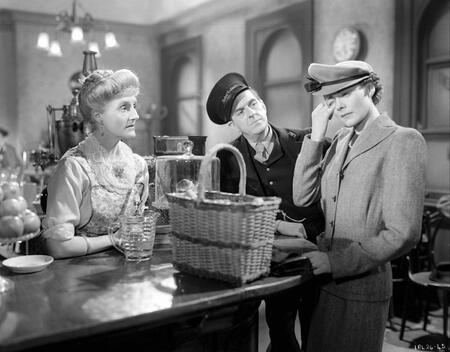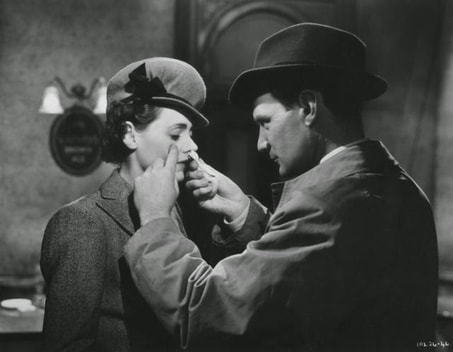|
Brief Encounter is a 1945 British romantic drama film directed by David Lean from a screenplay written by Noël Coward, based on his 1936 one-act play Still Life. (Another on screen adaptation was in 1974, a TV movie of the same name starring Richard Burton and Sophia Loren.) It stars Celia Johnson, Trevor Howard, Stanley Holloway, and Joyce Carey. The film follows a passionate extramarital affair in England shortly before WWII. The protagonist is Laura, a married woman with children, whose conventional life becomes increasingly complicated following a chance meeting at a railway station with a married stranger with whom she subsequently falls in love. Brief Encounter premiered in London on 13 November 1945, and was theatrically released on 25 November to widespread critical acclaim. It received three nominations at the 19th Academy Awards, Best Director, Best Actress (for Celia Johnson), and Best Adapted Screenplay. The film is widely cited by film critics, historians, and scholars as one of the greatest films of all time. In 1999, the British Film Institute ranked it as the second-greatest British film of all time. In 2017, a poll of 150 actors, directors, writers, producers, and critics for Time Out had it ranked the 12th-best British film ever. Laura Jesson(Celia Johnson), a respectable middle-class British woman in an affectionate but rather dull marriage, tells her story while sitting at home with her husband, imagining that she is confessing her affair to him. Laura, like many women of her class at the time, goes to a nearby town every Thursday for shopping and to the cinema for a matinée. Returning from one such excursion to Milford, while waiting in the railway station's refreshment room, she meets another passenger Alec Harvey(Trevor Howard), an idealistic general practitioner who also works one day a week as a consultant at the local hospital, who solicitously removes a piece of grit from her eye. The two accidentally meet again outside Boots the Chemist, and then on a third meeting share a table at lunch, then, both having free time, go to an afternoon performance at the Palladium Cinema. Both married with children, they are soon troubled to find their innocent and casual relationship developing into something deeper, approaching infidelity. For a while, they meet openly, until they run into friends of Laura's, and the perceived need to deceive others arises. The second lie comes more easily. They eventually go to a flat belonging to Stephen, a friend of Alec's and a fellow doctor, but are interrupted by Stephen's unexpected and judgmental return. Laura, humiliated and ashamed, runs down the back stairs and into the streets. She walks and walks, and sits on a bench for hours, smoking, until a concerned policeman encourages her to get in out of the cold. She arrives at the station just in time to take the last train home. The recent turn of events makes the couple realise that an affair or a future together is impossible. Understanding the temptation and not wishing to hurt their families, they agree to part. Alec has been offered a job in Johannesburg, South Africa, where his brother lives. Their final meeting occurs in the railway station refreshment room, now seen for a second time with the poignant perspective of their story. As they await a heart-rending final parting, Dolly Messiter, a talkative acquaintance of Laura's, invites herself to join them and begins chattering away, oblivious to the couple's inner misery. As they realise that they have been robbed of the chance for a final goodbye, Alec's train arrives. With Dolly still chattering, Alec departs without the passionate farewell for which they both long. After shaking Dolly's hand, he discreetly squeezes Laura on the shoulder and leaves. Laura waits for a moment, anxiously hoping that Alec will walk back into the refreshment room, but he does not. As the train is heard pulling away, Laura is galvanised by emotion, and hearing an approaching express train, suddenly dashes out to the platform. The lights of the train flash across her face as she conquers a suicidal impulse. She then returns home to her family. Laura's kind and patient husband, Fred, shows that he has noticed her distance in the past few weeks, although if he has guessed the reason is not clear. He thanks her for coming back to him. She cries in his embrace. The shooting of the film took place in early 1945 before the Second World War had finished. Much of the film was shot at Carnforth railway station in Lancashire, then a junction on the London, Midland and Scottish Railway. As well as a busy station being necessary for the plot, it was located far enough away from major cities to avoid the blackout for film purposes, but some of the urban scenes were shot in London or at Denham or Beaconsfield near Denham Studios where the film was made. Excerpts from Sergei Rachmaninoff's Piano Concerto No. 2 recur throughout the film, played by the National Symphony Orchestra, conducted by Muir Mathieson with pianist Eileen Joyce. There is also a scene in a tea room where a salon orchestra plays the Spanish Dance No. 5 (Bolero) by Moritz Moszkowski. The film was a great success in the UK and the 21st most popular film at the British box office in 1946. And it was voted one of the 10 greatest films ever made in two separate 1952 critics' polls. In 1999 the film was given the #2 slot on the British Film Institute's BFI Top 100 British films. Today, the film is widely praised for its black-and-white photography and the mood created by the steam-age railway setting, both of which were particular to the original David Lean version. The cast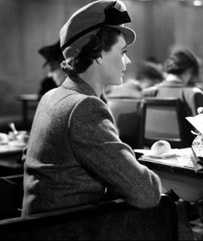 Celia Johnson as Laura Jesson 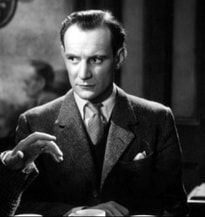 Trevor Howard as Dr Alec Harvey
0 Comments
Leave a Reply. |
Categories
All
Archives
October 2023
|
